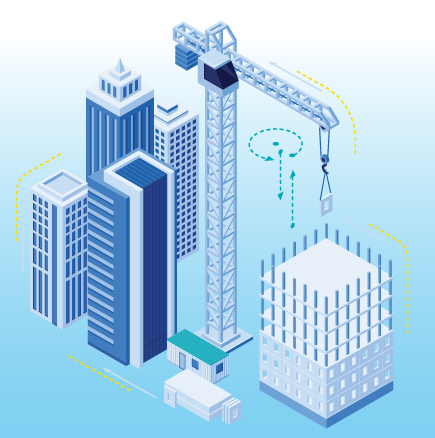UPCOMING EVENTS
 Military UAV & Air Defense Systems
Military UAV & Air Defense Systems
4 – 5 February 2026 | JW Marriott Hotel Kuala Lumpur, Malaysia
As global and regional security dynamics grow increasingly complex, the importance of advanced air defense systems and military UAVs has surged to the forefront of national defense strategies.
 5th Annual Modular Construction & Prefabrication Symposium
5th Annual Modular Construction & Prefabrication Symposium
4 – 5 March 2026 | Crowne Plaza Toronto North York, Canada
With an estimated 3.6 million new homes needed by 2035, averaging 300,000 units annually modular construction and prefabrication stand out as the most effective and efficient solutions to tackle Canada’s housing crisis.
 Virtual Design & Construction (VDC)
Virtual Design & Construction (VDC)
4 – 5 March 2026 | Crowne Plaza Toronto North York, Canada
The Canadian Architecture, Engineering, Construction, and Operations (AECO) industry is at a critical juncture in its Virtual Design & Construction (VDC) adoption.
 3rd Annual Mass Timber Construction
3rd Annual Mass Timber Construction
4 – 5 March 2026 | Crowne Plaza Toronto North York, Canada
The global mass timber construction market was valued at USD 1 billion in 2023 and is projected to grow at a compound annual growth rate (CAGR) of 8% from 2024 to 2033, reaching USD 2.15 billion by 2033.
 3rd Annual Affordable Housing
3rd Annual Affordable Housing
4 – 5 March 2026 | Crowne Plaza Toronto North York, Canada
As of 2024, approximately 40% of renter households in Toronto spend over 30% of their income on housing, exceeding the widely accepted affordability threshold.
 5th Annual Modern Methods of Construction
5th Annual Modern Methods of Construction
11 – 12 March 2026 | Royal on the Park Hotel, Brisbane, Australia
Modern Methods of Construction (MMC)—including modular, prefabricated, and precast systems—are emerging as critical solutions, cutting onsite labour needs by up to 50% and reducing construction timelines by 30–50%.
 Affordable Housing
Affordable Housing
11 – 12 March 2026 | Royal on the Park Hotel, Brisbane, Australia
In Brisbane, affordable housing remains a fundamental priority in urban planning, responding to the increasing demand for equitable and inclusive living in one of Australia’s fastest-growing cities.
 Mountain Resort Towns
Mountain Resort Towns
15 – 16 April 2026 | Vienna, Austria
Globally, the mountain tourism market was valued at USD 85.7 billion in 2022 and is expected to grow at a CAGR of 5.3% from 2023 to 2030 (Grand View Research, 2023).
 3rd Annual Build-To-Rent
3rd Annual Build-To-Rent
20 – 21 April 2026 | Stamford Plaza Melbourne, Australia
Queensland now represents approximately 22% of the national BTR pipeline, led by high-profile projects such as Frasers Property’s A$300 million Brunswick & Co and Mirvac’s LIV Anura.
 Cleanroom Manufacturing
Cleanroom Manufacturing
20 – 21 April 2026 | Stamford Plaza Melbourne, Australia
According to Horizon Grand View Research, Australia’s cleanroom technology market is forecast to reach US$181.4 million by 2030, expanding at a 6% CAGR between 2025 and 2030.
 15th Annual Shopping Malls Summit
15th Annual Shopping Malls Summit
22 – 23 April 2026 | JW Marriott Hotel Kuala Lumpur, Malaysia
During it’s prime in 2008, the mall used to attract 7.6 million people. The number has dropped by an alarming 35% in 2024 due to failing occupancy.
 AI Agents
AI Agents
13 – 14 May 2026 | Sydney Masonic Centre, Australia
A recent PwC survey of 300 senior executives highlights this momentum, with 88% planning to increase their AI budgets over the next year, largely due to advancements in agentic AI.
 AI Agents
AI Agents
20 – 21 May 2026 | Aloft Singapore Novena, Singapore
According to a PWC survey spanning 300 senior executives, 88% of respondents plan on boosting their AI-related budgets over the next 12 months driven by advancements in agentic AI.
 4th Annual Chief Risk Officer
4th Annual Chief Risk Officer
20 – 21 May 2026 | Aloft Singapore Novena, Singapore
A recent 2025 EY Global Risk Survey revealed that 78% of organizations now place risk management at the core of their strategic planning, highlighting the shift from reactive to proactive risk strategies.
 Credit Risk
Credit Risk
20 – 21 May 2026 | Aloft Singapore Novena, Singapore
Asia-Pacific’s credit environment has entered a transitional phase. With the default rate for speculative-grade corporates in APAC projected to rise from 1.5% to 2% by March 2026 , financial institutions must enhance their risk frameworks to future-proof portfolios.
 Chief Compliance Officer
Chief Compliance Officer
20 – 21 May 2026 | Aloft Singapore Novena, Singapore
The growing investment in compliance departments highlights the strategic significance of the function, with global compliance spending expected to surpass $200 billion by 2026—demonstrating a clear enterprise-wide commitment to reducing regulatory risk.
 Warehousing & Inventory Management Congress
Warehousing & Inventory Management Congress
23 – 25 June 2026 | JW Marriott Hotel Kuala Lumpur, Malaysia
In Greater KL, there are currently ~55.3 million square feet of warehousing/logistics space available, particularly concentrated in Klang and Shah Alam, which together account for about 80% of the market share due to their strategic proximity to Port Klang and Kuala Lumpur International Airport.









